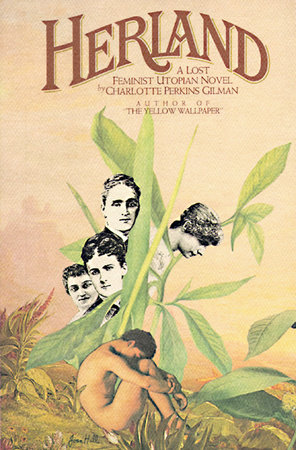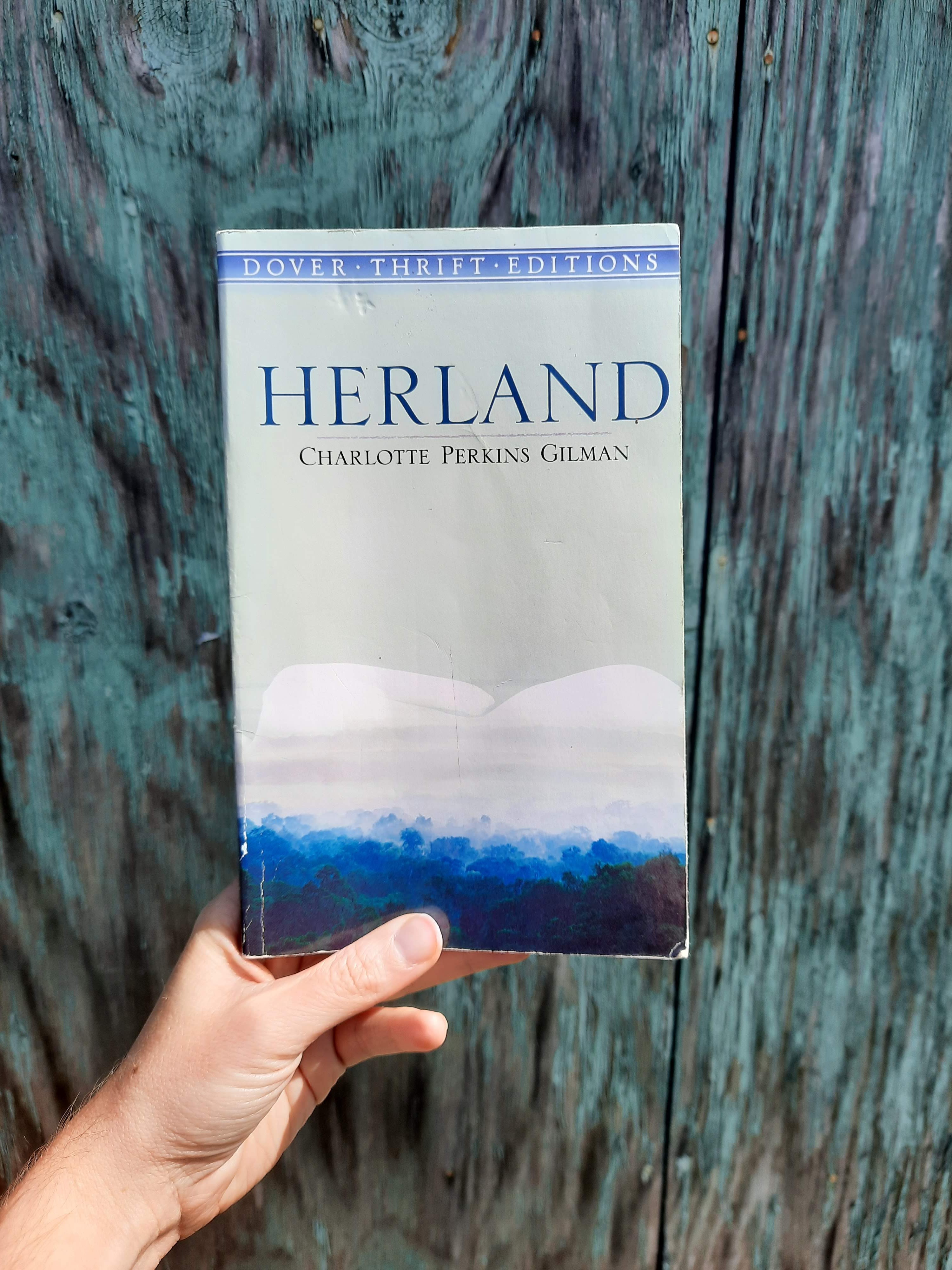Title: Herland
Author: Charlotte Perkins Gilman
Publication: 1915
Rating: 2.75/5 stars
CW/TW: mentions of rape/sexual assault
Notes: Vegan Book Club‘s April 2021 group read
A meat-free society with no men? Huh, I can’t imagine why anyone would consider that a utopia!
When Charlotte Perkins Gilman had something to say, she did not pull any punches. This is true for her most well-known piece of writing, “The Yellow Wallpaper,” a short story dealing with the mental and physical health of women, and it’s also true for Herland.

Herland is the second book in a series, but it can easily be read on its own. This novel, published in Gilman’s magazine The Forerunner in 1915, does not shy away from subverting the male-dominated system. In Herland, three men stumble upon a society made up exclusively of women – and this society has been this way for many, many years. That’s right: it’s been centuries since there have been men in Herland.
“But what about reproduction?” you might ask. Well, Gilman covered that: the women reproduce reproduce via parthenogenesis, or asexual reproduction.
According to the author, this leads to an ideal society – a utopia. In Herland, there is no war, conflict, or domination. There’s also no meat consumption. A dream!
The fact that Gilman chose to make her utopia vegetarian is interesting, to say the least. The author was, of course, a feminist, but it seems that back in the early 20th century, she was making a connection between women’s rights and animal rights that so many vegans discuss today. Couple Herland with the author’s poem, “The Cattle Train,” and one must wonder if Gilman herself was vegetarian.
Gilman, a woman writing about an all-female society, easily could have written from the perspective of one of Herland’s inhabitants. But instead, she chose to take the voice of a man. It’s a choice I’m not sure if I’m personally on-board with. I think Gilman does Herland a disservice by not having one of its women provide a first-person account of life there. While the men – Van, Jeff, and Terry – have all been around women in their lives, those who live in Herland have never encountered a man. A first-person narration with their thoughts on the men and their way of life could have been really powerful.

Still, Gilman’s decision to have Van as the narrator has its benefits. While Terry serves as the sexist alpha-male, Jeff is the more feminist voice. Then, you have Van, who is somewhat of a happy medium. By telling the story through the eyes of the men, Gilman is more easily able to show growth and understanding of Herland’s way of life.
Although, in the end, all three men still hold on to some pretty sexist ideas (see: Van’s criminal actions towards one of the women, Alima).
Reading Herland in 2021 is a bizarre experience. You would think that as a society, we would have majorly grown in the 100+ years since the novel’s publication, but there is still so much in the book that is relevant today. Even worse, there are hints of eugenics and racial bias in the novel that are extremely off-putting (though not surprising for the time period). The book being only about 150 or so pages is probably a good thing in that regard. If Herland was a full-length novel, these things could get seriously out of hand.
So overall, Herland is not a perfect book – I wouldn’t expect it to be – but it’s decent, an interesting look into what life was like for women during Gilman’s era.
(Psst…I’m currently accepting freelance work, so if you need a writer or editor (blogs, web copy, social media, books, etc.), feel free to contact me here!)


Leave a comment